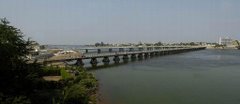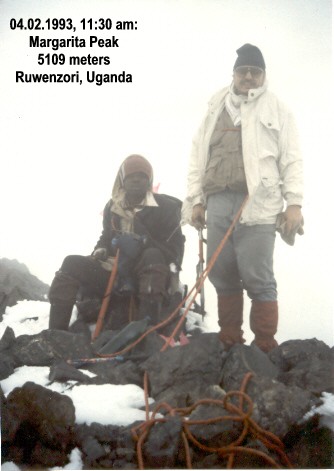The strings and non-strings of China's Africa engagement
"The framework of the "new" Sino-African relations should be set into some sort of pragmatic context. Too much of the recent commentary about China-Africa ties are too wide-eyed and annotated to be of much use in gauging critical trends. The widespread notion that the new turn of the relationship is not only qualitatively different from what has been before, in the Cold War, with the West, with China itself in the past, but also unanchored to general global developments, is plainly useless when faced with concrete facts on the ground.
Let's take the principal shibboleth: China's relationship with Africa is one of no strings attached.
From the selected snapshots above, it is obvious that a great many of the concerns that have dogged Africa's dealings with major powers are also present in the relationship with China. In fact, one is easily swayed to the view that the concern should be with Africa itself. As long as it appears to remain "static", even as other parts of the world evolve, or, in the case of Southeast Asia, surge forward, China's relationship with others will appear exploitative, unbalanced, strained. Such a situation is almost as certain as a law of physics.
If Africa's needs and offerings remain fixed, even as the needs and offerings of its partners undergo rapid transformation, then any relationship it enters, no matter how well-meaning, will develop serious compatibility frictions. This is plainly self-evident, so it amazes us that many people believe that the "new" Sino-African relations will thwart this inevitability. In particular, we find the attitude to China's economic cooperation with Africa unbelievably naive.
This perception of Sino-African diplomacy is parodied in a play by Nigerian Nobel literature laureate Wole Soyinka in which a character representing the late Idi Amin of Uganda in a fit of anger over the actions of his Russian allies explains why he prefers his newfound "non-interfering" Chinese technical advisers: "What's more, they bring their own food!" Like all simplistic generalizations, the notion that Chinese aid to Africa carries no strings is of course a myth. It is false even when the assertion is qualified by comparison with Western aid.
What people often mean is that no "transparent" strings are attached. In that sense perhaps so, but only if the uncritical distinction between it and Western aid is then also removed, because in the past several Western aid programs in Africa have similarly come with no "visible" strings attached. One can think of French military-technical assistance to its former colonies (which Lansana Gberie, a security expert, asserts to have been worth many millions of dollars in 1984) or the United States' anti-communist projects across the continent: in what was then Zaire, apartheid South Africa, and Angola.
China's aid, in the absence of these caveats, comes with "strings attached" - in fact it provides enough rope for either partner to hang itself. Foremost among these is the injunction against dealings with Taiwan and the unstated - publicly, that is - commitment by the recipient nation to favor Chinese consortiums for the development of whichever projects the aid is earmarked for.
For example, sports stadiums have become one of Beijing's most favored development projects in Africa. This is because of Chinese companies' track record of building these across the continent. In Mozambique, for instance, China is both the biggest fund provider and builder of roads.
China's Exim Bank makes no effort to hide its mandated purpose of using loans as means of securing contracts, particularly in high-value processes, for Chinese companies abroad. The 800 Chinese companies in Africa are viewed by Beijing as fulfilling both political and economic roles, and as part of a diplomatic effort to project influence.
In Nigeria, to cite a further example, oil concessions have gone to Chinese companies as part of multibillion-dollar infrastructure loan arrangements. The same is the case in Angola. Perhaps to redeem the "no strings attached" argument, it can be said that these are commercial "strings" and differ in that respect from the more complex conditions often insisted on by Western aid givers. Such a contention will be flawed on several levels.
All donor countries have their priorities, which evolve according to different timelines. Western donors may calculate that promoting free markets means eventually securing better trade relations with Africa. China may emphasize immediate gains through political negotiations. The difference is of style and emphasis, not of fundamental structure, which at any rate, in our view, is tied to the very orientation of Africa itself, and far less so to the disposition of Africa's partners."
Read more on this and other developmental issues at the excellent » IMANI Center for Policy & Education Homepage.




